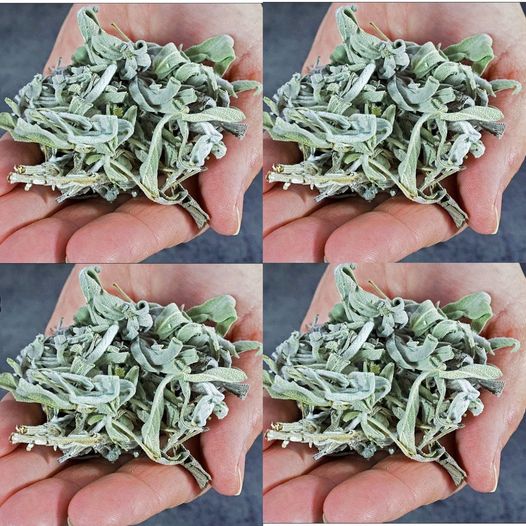The old saying “death begins in the intestines” highlights just how crucial gut health is to our overall well-being. When our gut health is compromised, it can lead to a host of serious illnesses. In this context, sage stands out as a remarkable herb that offers significant support for gut health and much more. Let’s explore why adding sage to your diet can be a transformative step towards better health.

The Power of Sage for Gut Health
Sage, or Salvia officinalis, is well-known not only for its delicious taste in food but also for its potent medicinal properties. It’s full of nutrients and bioactive compounds that provide numerous health benefits:
Supports Digestive Health
Antispasmodic Effects: Sage possesses antispasmodic properties that can help relieve abdominal cramps and reduce bloating. It works by soothing the muscles in your stomach and intestines, making the passage of food much easier.
Stimulates Digestive Enzymes: Sage can stimulate the production of digestive enzymes, helping you break down food more efficiently and absorb nutrients better.
Antimicrobial Properties
Sage has antimicrobial qualities that help balance the gut flora by fighting off harmful bacteria and fungi. This supports the growth of beneficial bacteria, crucial for preventing gastrointestinal infections and maintaining a strong immune system.
Anti-inflammatory Effects
The rosmarinic acid in sage has impressive anti-inflammatory properties, making it helpful for managing inflammation in the gut. This is especially beneficial for those with inflammatory bowel diseases like Crohn’s disease or ulcerative colitis.
Rich in Antioxidants
Sage is a fantastic source of antioxidants, including flavonoids and phenolic acids. These compounds protect your body from oxidative stress and reduce the risk of chronic diseases.
How to Use Sage for Gut Health
One of the easiest ways to enjoy the digestive benefits of sage is by making sage tea. Here’s a simple recipe:
Ingredients:
1-2 teaspoons of dried sage leaves or a handful of fresh sage leaves
1 cup of boiling water
Instructions:
Prepare Sage: If you’re using fresh sage, rinse the leaves under cold water and chop them roughly to release more flavor and oils.
Steep the Sage: Place the sage leaves in a cup and pour boiling water over them. Cover and let it steep for about 5-10 minutes.
Strain and Serve: Strain the tea to remove the leaves. For additional flavor, you can add a teaspoon of honey or a splash of lemon if you like.
Enjoy: Drink sage tea once or twice a day, particularly after meals to aid digestion and promote gut health.
Precautions
Avoid Excessive Consumption: While sage is beneficial, consuming it in large quantities can be harmful due to a compound called thujone. Stick to a few cups of sage tea a day or use it moderately as a culinary herb.
Pregnancy and Nursing: If you are pregnant or nursing, consult your healthcare provider before using sage as a remedy.
Medical Conditions: Individuals with certain medical conditions, especially hormone-related ones like estrogen-sensitive conditions, should consult a healthcare professional before adding significant amounts of sage to their diet.
Sage is much more than a flavoring for your favorite dishes; it is a medicinal powerhouse that can greatly benefit your gut health and overall well-being. By understanding and leveraging the properties of sage, you can take meaningful steps toward maintaining a healthy digestive system and improving your quality of life.




